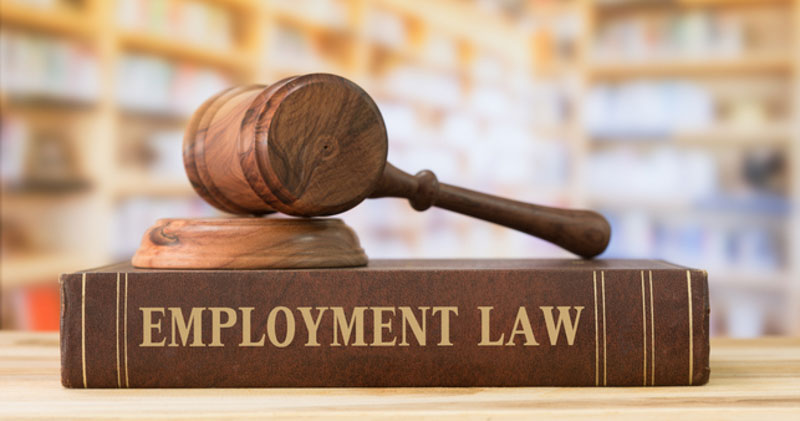
An Enterprise Agreement is negotiated between employers, employees and bargaining representatives to establish a fair working wage and conditions of employment.
Enterprise Bargaining Agreement (EBA) was an old term prior to the Fair Work Commission (FWC) amending it to Enterprise Agreement. Prior to EBAs were Collective Agreements which were in place before the Fair Work Act 2009.
An Enterprise Agreement (EA) gives employers and employees the freedom to bargain for better wages, greater flexibility and working conditions to suit their individual needs above and beyond a Modern Award or the National Employment Standards (NES).
The Fair Work Act 2009 sets out strict rules and guidelines for all parties to follow to ensure the process is fair. This includes guidelines for negotiating, mandatory terms to include, and the requirements to meet the Fair Work Commission’s (FWC) approval standards.
BrightHR helping you manage your people and business
Contact us to find out how BrightHR people management software can help you manage and store your essential employee records and documents.
What is an Enterprise Agreement?
An Enterprise Agreement sets out the minimum terms of employment between one or more employers and their employees or a group of their employees. The Agreement may replace any applicable modern awards to act as the base terms and conditions of employment for those employees who are covered by the EA; or it may incorporate certain terms from the relevant parent Award.
Enterprise Agreements can benefit employers because they can negotiate for more flexible working conditions provided employees are better off overall. Likewise, employees can bargain for higher wages and extra benefits the applicable Modern Award may not offer.
There are three types of employment agreements:
Single-Enterprise Agreement: made between one or more single interest employers (employers with shared interests i.e. in a common enterprise, joint venture or related corporations, or who are authorised to be single interest employers by the Fair Work Commission) and employees to be covered by the agreement.
Multi-Enterprise Agreement: made between one or more employers who may not have a single interest and employees to be covered by the agreement.
Greenfields Agreement: made in relation to a new enterprise before any employees are hired. This agreement can be a single-enterprise or multi-enterprise agreement and is between employers and employee associations or other bargaining representatives (usually a union).
An Enterprise Agreement cannot offer overall lesser terms than the Modern Award or national minimum standard.
Topics to cover
An Enterprise Agreement covers a range of matters from rates of pay to employment conditions and dispute resolution procedures. The Fair Work Act 2009 requires an Enterprise Agreement to contain the following terms:
coverage term that explains who the agreement covers
flexibility term that allows an employer and an employee to agree to vary some specific terms of the agreement with employees to suit through an individual flexibility agreement
consultation term that require the employer to provide notice and consult with affected employees regarding any major workplace changes
dispute resolution term that allows the FWC or another independent party to settled disputes concerning matters arising under the agreement
nominal expiry date of the agreement no longer than four years from the agreement’s approval date.
In addition to the mandatory terms, an EA can only contain ‘permitted matters’, which includes terms relating to rates of pay, penalty rates, overtime, allowances, standard hours, annual leave, personal/carer’s leave and deductions from wages.
There are certain terms that cannot be included in an EA, specifically:
discriminatory terms, or terms that otherwise breach the general protections of the Act;
objectionable terms, for example a term that requires or permits breach of the general protections;
terms that are inconsistent with the unfair dismissal provisions of the Act;
terms that are inconsistent with the industrial action provisions of the Act; and
terms that are inconsistent with the right of entry provisions of the Act.

FREE Fair Work Act Guide Download
Understand your workplace rights and responsibilities under the Fair Work Act today!
What Is The Difference Between A Modern Award And An Enterprise Agreement?
Like awards, enterprises agreements set out minimum entitlements and employment conditions for your business. An enterprise agreement is negotiated within one or more specific businesses, rather than determined by the Fair Work Commission for an entire industry or occupation. But it still needs Fair Work Commission approval before it can come into effect. Generally, when you have an EA the award doesn’t apply, though some agreements do defer to the award or incorporate award provisions.
Enterprise agreements can be tailored to meet the needs of a business or group of businesses and can include provisions regarding various matters, such as rates of pay, employment conditions and dispute resolution processes. The agreement cannot include anything unlawful, for example anything discriminatory. The minimum pay in the agreement still can’t be less than the base rate of pay for the classification under the award, and the National Employment Standards (NES) enshrined in the Fair Work Act will also continue to apply. The employees also need to be “better off overall” than they would have been under the award for the Fair Work Commission to approve the agreement.
Enterprise Bargaining Process
Employers, employees and their bargaining representatives are involved in the process of bargaining for a proposed enterprise agreement in good faith. Once an employer decides to initiate the bargaining for an EA, they are required to take all reasonable steps to notify any existing employees who will be covered by the EA of their right to be represented throughout the negotiations. Once the notice of employee representational rights has been issued, negotiations can commence.
There are four steps to the bargaining process:
Notice of Representational Rights
Commencement of Good Faith Bargaining
Voting and Access Period to the finalised EA
Approval by the Fair Work Commission
Get Workplace Advice Now
Call Our Team of Expert Advisers To Get Help With Any Workplace related Questions.
Frequently Asked Questions
What Is In An Enterprise Agreement?
An Enterprise Agreement (EA) is an agreement between an employer and a group of employees that provides terms and conditions of employment, for example rates of pay, including some mandatory terms such as flexibility and consultation provisions, and dispute resolution processes. The agreement cannot include anything unlawful, for example anything discriminatory.
Is An Enterprise Agreement A Contract?
No. An employment contract is an agreement between an individual employer and their employee which has no specific format though it must meet certain minimum standards under the National Employment Standards or the applicable industrial instrument. An enterprise agreement is negotiated between an employer or group of associated employers and a group of employees. Both the bargaining process and the agreement need to meet certain requirements under the Fair Work Act 2009 before the Fair Work Commission approves the final agreement.
Does An Enterprise Agreement Replace An Award?
An Enterprise Agreement may replace an Award or incorporate some of the applicable Award terms.
Do You Have To Have An Enterprise Agreement?
No. Employers, employees or their bargaining representatives (e.g. a Union) can seek agreement to commence bargaining with a view to making an enterprise agreement.
Why Would An Employee Agree To An Enterprise Agreement?
An Enterprise Agreement may provide employees with better working conditions than they would have under the Award. The employees need to be “better off overall” than they would have been under the award for the Fair Work Commission to approve the agreement.
Who Is Covered By An Enterprise Agreement?
An Enterprise Agreement sets out the terms and conditions of employment between one or more employers and a group of employees.










